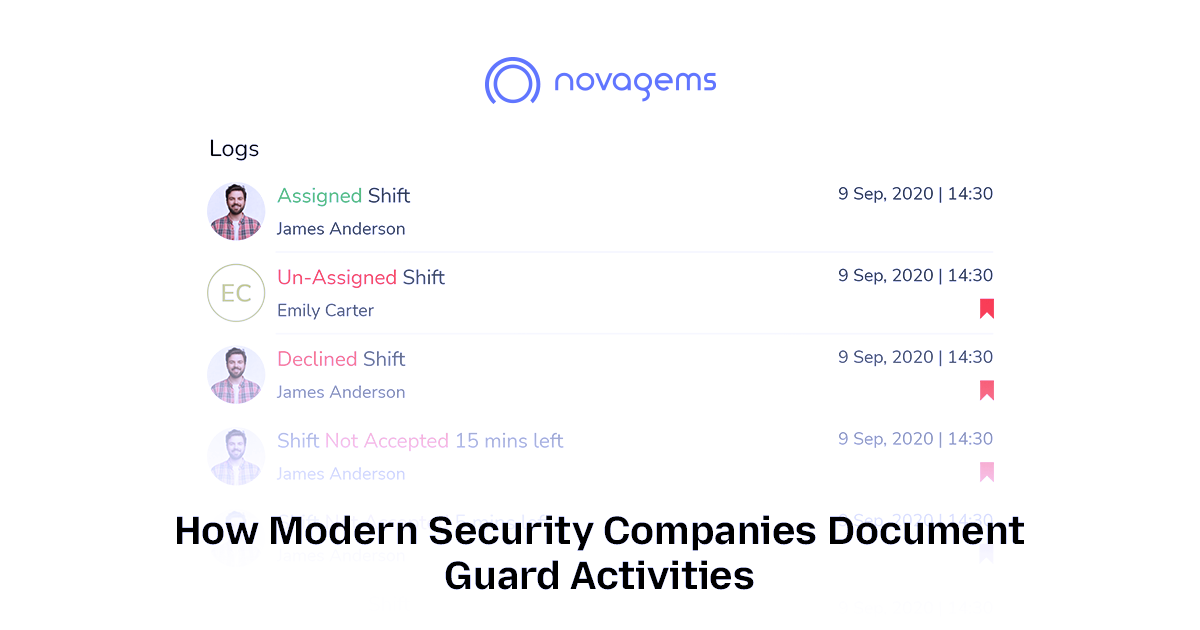What are the Best Cleaning Equipment Essentials for Professionals
Wed, Jul 17, 2024
Read in 8 minutes
To run your commercial cleaning or residential cleaning business you need a list of the best cleaning equipment essentials for professionals. Use this guide to save time and money in researching and build your business.

Key Takeaways
- Having the right equipment boosts efficiency, consistency, safety, and service quality.
- Essential tools include scrubbers, vacuums, microfiber gear, pressure washers, and chemical dispensers.
- Equipment choice should consider site scale, surface types, mobility, maintenance, and cost of ownership.
- Technology integration (sensors, IoT monitoring) is an emerging trend in professional cleaning.
- Proper procurement, maintenance, training, and replacement strategies ensure ROI and longevity.
Introduction to Essential Cleaning Equipment
When it comes to professional cleaning, having the right equipment is crucial for efficiency and effectiveness. Whether you are a small business owner or part of a large cleaning company, investing in quality cleaning tools can make a significant difference in your operations. The type of cleaning services you offer depends on what type of cleaning equipment you use. If you are in search of the best cleaning equipment essentials for professionals then we have a blog that will help. It will save a lot of time and energy for you and your team too.
This blog will guide you through the essential cleaning equipment and supplies every professional cleaner should have. Ensuring you are well-prepared for any cleaning task.
Why Equipment Choices Matter
Before listing machines, it helps to understand why equipment is so critical:
- Efficiency & labor savings: A ride-on scrubber or auto-scrubber can clean much faster than manual mopping, reducing labor hours.
- Consistency & quality: Machines deliver uniform pressure, coverage, and chemical dosing, reducing human variability.
- Safety & ergonomics: Tools that reduce bending, lifting, or repetitive motion help prevent injuries.
- Cost of ownership: The right quality (durable parts, serviceability) often pays for itself in fewer replacements and repair costs.
- Client perception: Modern, well-maintained equipment gives clients confidence in your professionalism.
Also, survey data shows that businesses investing in higher-end cleaning machinery often see lower operating costs per square foot and fewer client complaints about cleanliness.
The Top Commercial Cleaning Supplies List
To provide top-notch cleaning services, you need to be equipped with both general and specialized cleaning tools. Below, we break down the essential equipment and supplies into various categories to help you understand their importance and uses.
-
Equipment for Cleaning Floors
Cleaning floors is a fundamental part of any cleaning service, and the right equipment can make this task much easier.
- Vacuum Cleaners:
A high-quality vacuum cleaner is a must-have for both residential and commercial cleaning. Look for vacuums with HEPA filters to ensure dust and allergens are effectively captured. For commercial spaces, industrial vacuums with powerful suction and large capacities are ideal.
- Floor Buffers:
For businesses dealing with large floor areas, a floor buffer can save time and effort. These machines help polish and clean hard floors, leaving them looking shiny and new.
- Carpet Cleaners:
Carpet cleaners are essential for maintaining the appearance of carpeted areas. These machines use a combination of cleaning solutions and suction to remove dirt and stains from carpets.
- Mops and Buckets:
A good mop and bucket are necessary for wet cleaning hard surfaces. Consider using microfiber mops as they are more effective at trapping dirt and require less water and cleaning solution.
-
Wet Work Supplies
Wet work involves cleaning tasks that require water and other liquid cleaning agents. Here are some essential supplies:
- Sponges and Scrubbers:
Different types of sponges and scrubbers are needed for various surfaces. Non-abrasive sponges are ideal for delicate surfaces, while heavy-duty scrubbers can tackle tough grime.
- Spray Bottles:
Having a few spray bottles on hand filled with different cleaning solutions is convenient for quick cleanups and spot cleaning.
- Squeegees:
Squeegees are essential for window cleaning, ensuring a streak-free finish. They can also be used for cleaning other smooth surfaces.
- Buckets:
A sturdy bucket is essential for carrying water and cleaning solutions. Look for buckets with measurement markings and ergonomic handles for ease of use.
-
All-Purpose Supplies
All-purpose supplies are versatile tools that can be used in a variety of cleaning tasks.
- Microfiber Cloths:
Microfiber cloths are highly effective for dusting and wiping surfaces. They can be used dry or damp and are reusable after washing.
- Dusters:
Dusters with extendable handles are great for reaching high places like ceiling fans and light fixtures. They help remove dust without the need for ladders.
- Cleaning Caddies:
A cleaning caddy helps organize and transport your cleaning supplies, making it easy to move from one area to another.
- Trash Bags:
Always have a supply of heavy-duty trash bags for collecting waste and debris during your cleaning tasks. If you are ever on the lookout for “What equipment do professional cleaners use?” then you will always find the trashbag option at the top of the list. Because when the cleaners are done cleaning, they will need to throw the dirt and debris out. For that, they will use trash bags.
The Everyday Cleaning Products
In addition to the equipment, having the right cleaning products is essential for effective cleaning. Here are some everyday cleaning products you should have:
1. Disinfectants:
Disinfectants are crucial for killing germs and bacteria on surfaces. Choose EPA-approved disinfectants to ensure they are effective against a wide range of pathogens.
2. Glass Cleaners:
Glass cleaners are formulated to clean windows, mirrors, and other glass surfaces without leaving streaks.
3. All-Purpose Cleaners:
These cleaners are versatile and can be used on various surfaces, including countertops, appliances, and floors.
4. Floor Cleaners:
Specialized floor cleaners are designed for different types of flooring, such as hardwood, tile, and laminate. Ensure you choose the right cleaner for the type of floor you are working on.
5. Monitoring / IoT Sensors (Emerging Trend)
Some advanced cleaning operations now embed sensors to detect floor wetness, occupancy, dust levels, or air quality. These sensors feed data to dashboards, enabling predictive cleaning (clean only when needed). This trend helps optimize scheduling and reduce wasted effort in low-use areas.
How to Choose the Right Equipment for Your Operation
Selecting equipment is not just about features — you must match tool to context.
Assess Your Site Scale & Surface Types
Large facilities (malls, airports, warehouses) justify ride-on scrubbers, while smaller offices may only need walk-behind or manual tools.
Consider Mobility & Power Availability
Cordless or battery models help avoid tripping hazards in complex layouts. For outdoor or remote zones, gas-powered machines may be necessary.
Prioritize Serviceability & Parts Availability
Choose brands where spare parts are accessible, technicians exist nearby, and maintenance support is reliable in your region.
Evaluate Total Cost of Ownership (TCO)
Consider purchase price, parts, servicing, consumables, downtime, depreciation. Sometimes a more expensive machine can cost less over 5–7 years.
Match Features to Contracts
If clients stipulate high air quality, choose vacuums with HEPA filters. For exterior contracts, pressure washer capacity and reach matter.
Train Staff & Enforce SOPs
Machines are only as effective as operators. Proper training, standard operating procedures (SOPs), and audits ensure longevity and consistent results.
Plan for Replacement & Lifecycle
Equipment wears out. Plan replacement cycles, manage inventory of backup parts, and budget amortization.
The Most Important Cleaning Equipment for You
Once you get all of the things that are mentioned above, you can think about expanding your options too. You need to get a cleaning service software that will help you manage your operations. Novagems is the most important cleaning equipment you will need once you start expanding your business.
With this software, you can operate your business from anywhere, anytime. You can get your cleaning contracts easily and give exceptional services too. Here are some of the features you can enjoy:
- Smart scheduling
- Easy invoicing
- Employee tracking
- Digital timesheets
- Client management
- Work management
- Instructions and checklists
- Geofencing
When you have Novagems as your ally, your cleaning business can achieve new heights of success easily. Designed for both commercial cleaning services and residential services, it makes work fun.
Parting thoughts
In conclusion, having the right cleaning equipment and supplies is essential for providing professional cleaning services. By investing in high-quality tools and products, you can improve your cleaning efficiency and deliver better results to your clients. Remember to regularly maintain and store your equipment properly to ensure its longevity and performance. Use this cleaning supplies checklist to start your cleaning service business.
Frequently Asked Questions
What are the must-haves vs nice-to-haves in cleaning equipment?
Must-haves include scrubbers, vacuums, microfiber tools, safety gear, and carts. Advanced or “nice-to-have” ones are pressure washers, IoT sensors, or aerial window platforms depending on scale.
How often should equipment be replaced?
Depending on usage and maintenance, many professional machines last 5–7 years. Parts, wear components, and battery lifecycles may require replacement more frequently.
Is buying premium equipment always better than leasing?
Not always. Leasing or renting is beneficial when you test new tech, serve short-term contracts, or want to avoid large upfront capital investment.
How much maintenance does professional equipment need?
Regular preventive maintenance (weekly, monthly checks), parts replacement, cleaning filters, calibration of dosing systems, and annual servicing are standard.
Could software like Novagems help manage equipment usage or maintenance logs?
Yes. In many field-service / cleaning operations, software platforms can log usage hours, track maintenance schedules, notify service due dates, and tie machines to site assignments — helping managers avoid downtime and plan replacements.
Get a Free Trial
Sign up For Newsletter
Latest Blog Posts
Get Started
Start being productive & grow your business
with Novagems





